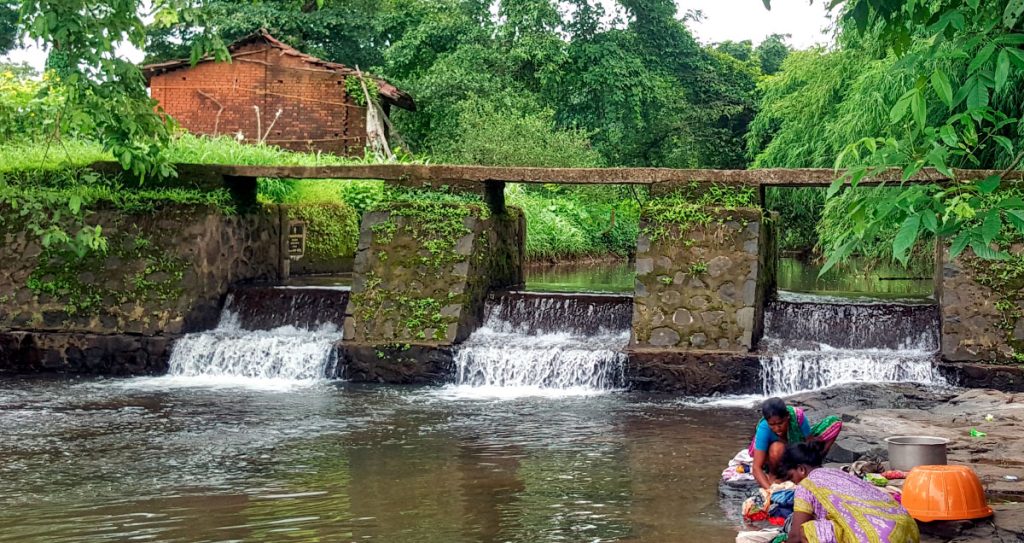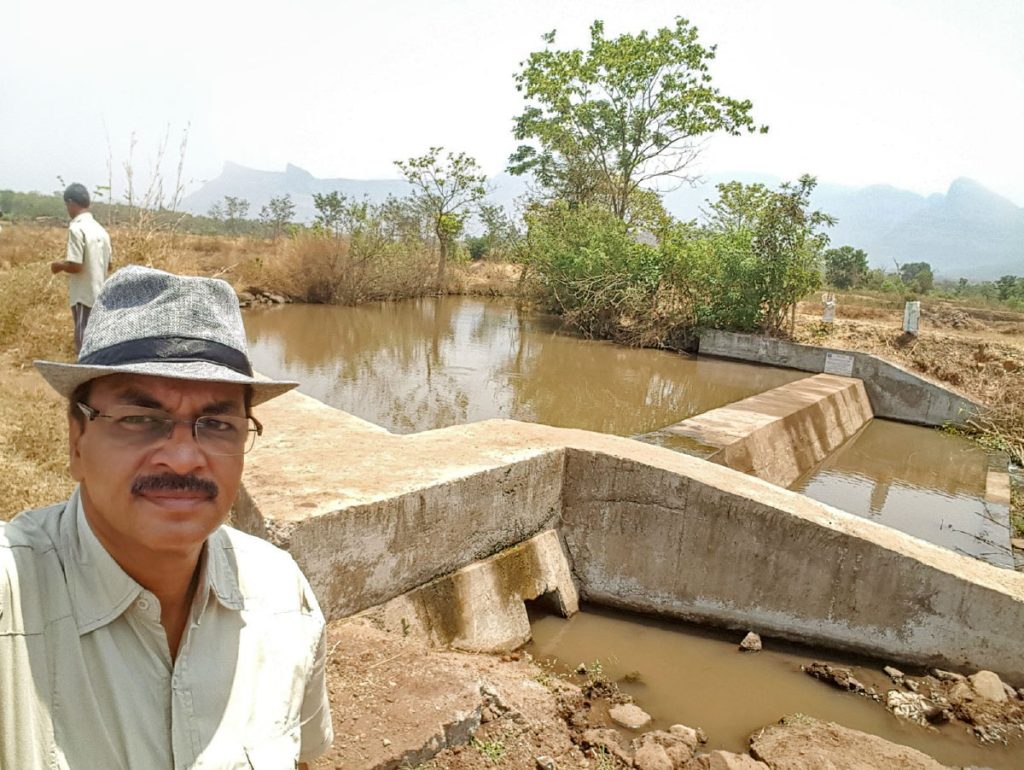Jadav, a farmer in a village in Thane district in Maharashtra, has recently planted almond saplings in his field.

“Watermelons, tomatoes and cucumber grown in the fields here are now being exported,” says Hemant Jagtap, a member of RC Thane Premium, RID 3142, and a recipient of Rotary’s Service Above Self Award. The check dam constructed in Phugale village in this district has helped Mathura, a widow with two children, cultivate bottle gourd in a small patch of land, “which has now expanded to 10,000sqft,” he adds.
Barely a few years ago, these farmers were battling for their survival, but Rotary clubs in Thane came to their rescue, and the groundwater table in several villages in this region has improved considerably and farmers are able to cultivate alternate cash crops now.
The project has helped provide water for 2 lakh tribal people, and 4,000 cattle in villages across Murbad, Shahapur, Bhiwandi, Talasari, Jawhar, Palghar, Vikramgad, Vasai, Dahanu and Wada taluks in Maharashtra. “The total project value till now is ₹17 crore. Jal jeevan ka adhaar hai (water is the basis of life),” says Jagtap.
He is instrumental in the construction of 496 check dams across villages in Thane district since 2005. “Earlier, when villagers experienced water scarcity and had to depend on the monsoon, they could cultivate just one crop. Women had to walk long distance to bring home water. Most families would migrate to nearby towns to take up menial jobs to earn a living. Children’s education invariably suffered. But now all these villages are thriving and the fields are green and prosperous,” he says.

Jagtap, a retired PWD executive engineer, was earlier a member of RC Thane Northend. He was drawn to the club’s discussion to find a solution to the water woes of Nehroli village in Wada taluk, and actively participated in the construction of a basic check dam there in 2005 at a cost of ₹1.85 lakh. The facility was inaugurated by the then DGE Bharat Pandya. “He appreciated the project and encouraged us to design a ‘rural water management programme’ in 2006–07 when he was DG.” The club, along with other Rotary clubs in the district, focused on providing water solutions such as constructing check dams in villages, providing water filters in schools and piped water for households.
The Nehroli project which was exhibited at the annual meet of the Bombay Chamber of Commerce and Industry won support from corporates such as L&T, Balmer & Laurie, Kansai Nerolac and Deutsche Bank. “L&T, through its CSR wing, supported our project for five years from 2007 to build 200 check dams, and later, with our club matching ₹40 lakh, we added 50 more facilities. Lions International has been partnering with us for the last three years to construct 12 check dams every year. An MoU is to be signed between Rotary and Lions next year for the construction of 20 check dams every year,” says Jagtap.

Over the years, TRF had approved nine global grants of $30,000 each. “The construction cost works out to ₹4–7 lakh for each facility and we could do 5–6 check dams with each GG.” A GG with Rotary clubs in Japan as international partners helped construct five check dams worth ₹45 lakh in Jawhar taluk, and another GG worth $211,000 with WASRAG (Water and Sanitation Rotary Action Group) as a partner provided the facility to nine more villages in the region. Water purifiers were distributed to households under this project in 2011–12.
The project also includes restructuring rudimentary UCR (uncoursed rubble) masonry check dams built by various government agencies. “We have refurbished 16 such check dams,” he says.
Each concrete check dam, 10–20m long, can store 20–30 lakh litres of water, enough to irrigate 20–30 acres of land. “So far, the facilities in all these villages put together are irrigating around 9,900 acres of land, helping over 5,000 small farmers improve their income by an average ₹20,000 per acre per year.”

Jadav, a farmer in Talasari village, is happy that he can now grow vegetables as an additional crop, apart from paddy. With the availability of copious water, the yield is good. “It is a cycle. I am able to make good money, enough to take care of my fields which in turn gives me a bounty. I am able to provide education to my two daughters and also save for their future. If not for Rotary, we people would have been struggling for survival. We would have been forced to migrate to other towns and live a nomadic life,” he says.
Jagtap relates an incident where he had accompanied 30 students of the Singhania School in Thane on an educational tour to Sonavale village a couple of months ago to explain the water conservation concept. “Tired and thirsty after a tour around the check dams we had built in the village, we rested on the doorsteps of a villager and requested him for some water. When I thanked the villager for the water, I was so happy to hear him say: I thank you; because of your efforts we are getting this water.”

“I know the seriousness of water scarcity because I hail from drought-prone Dhule,” says Jagtap. He served as president of the Rotaract Club of Dhule in 1988–89, joined RC Thane Northend in 1999 and is a member of RC Thane Premium since 2015. He, along with a team of trained volunteers, leads the water conservation projects for RIDs 3141 and 3142 as technical service providers. “We identify the site for the check dam, arrange funds and educate the local communities about the project and the benefits it brings. In most places, we have to convince the villagers that the water stored in the check dams will not overflow into the fields. Once they understand the idea, they extend all help,” he says.
The Rotarians are confident of scaling up the total number of check dams to 500 by this yearend.





